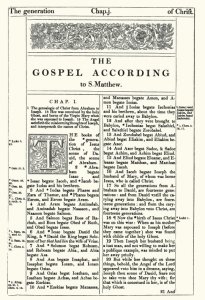Our Lord was given the Aramaic form of the Hebrew name יֵשׁוּעַ (Yeshua), the Aramaic being ישוע, as I understand it we largely have to make an educated guess of how the name was pronounced in Jesus' Galilean dialect of Jewish Palestinian Aramaic, but perhaps something like Yeshu'.
There had already, for centuries, been a standardized way of Hellenizing this name, both the Hebrew and also Aramaic forms, such as can be seen in the Hellenization of both Joshua ben Nun and Jeshua the high priest mentioned in the Old Testament as found in the LXX. That is IHΣOYΣ/IHCOYC (the letter Sigma variously being either Σ or C, the latter known as a Lunate Sigma), and in modern Greek script, Ιησούς. The Greek pronunciation being close to Yay-soos.
When Latinized this became IESUS (Iesus).
In the late middle ages the Consonontal form of the Latin letter 'I' was slowly replaced by a new symbol, 'J', basically an 'I' with a tail to differentiate it from regular 'I'. As such the spelling Iesus was displaced by Jesus in Western European languages using the Latin Alphabet.
In English the 'J' symbol came to represent the imported French sound /ʒ/ (think the 'j' in the French word "bonjour", or the second 'g' in the English word "garage") as well as the harder /dʒ/ sound, as in the English "jump". And so "Jesus" came to be pronounced not with the soft Consonontal I sound, but that harder 'j' sound we are familiar with today.
That gives us the modern spelling "Jesus" and the common English pronunciation of "Jee-zuss" (and similar).
-CryptoLutheran

